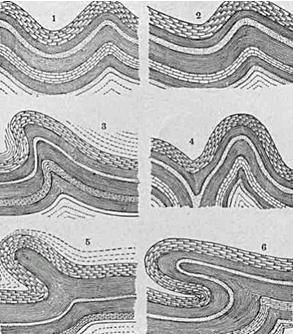UPSC Exam > UPSC Tests > Test: Geomorphic Processes - 1 - UPSC MCQ
Test: Geomorphic Processes - 1 - UPSC MCQ
Test Description
10 Questions MCQ Test - Test: Geomorphic Processes - 1
Test: Geomorphic Processes - 1 for UPSC 2025 is part of UPSC preparation. The Test: Geomorphic Processes - 1 questions and answers have been prepared
according to the UPSC exam syllabus.The Test: Geomorphic Processes - 1 MCQs are made for UPSC 2025 Exam.
Find important definitions, questions, notes, meanings, examples, exercises, MCQs and online tests for Test: Geomorphic Processes - 1 below.
Solutions of Test: Geomorphic Processes - 1 questions in English are available as part of our course for UPSC & Test: Geomorphic Processes - 1 solutions in
Hindi for UPSC course.
Download more important topics, notes, lectures and mock test series for UPSC Exam by signing up for free. Attempt Test: Geomorphic Processes - 1 | 10 questions in 10 minutes | Mock test for UPSC preparation | Free important questions MCQ to study for UPSC Exam | Download free PDF with solutions
Test: Geomorphic Processes - 1 - Question 1
Rapid rolling or sliding of earth debris without backward rotation of mass is known as
Detailed Solution for Test: Geomorphic Processes - 1 - Question 1
Test: Geomorphic Processes - 1 - Question 2
The capacity of rocks to allow water to pass through it is called_________
Detailed Solution for Test: Geomorphic Processes - 1 - Question 2
Detailed Solution for Test: Geomorphic Processes - 1 - Question 3
Test: Geomorphic Processes - 1 - Question 4
Which is the force that continuously elevate or build up parts of the earth’s surface?
Detailed Solution for Test: Geomorphic Processes - 1 - Question 4
Detailed Solution for Test: Geomorphic Processes - 1 - Question 5
Test: Geomorphic Processes - 1 - Question 6
All processes that move, elevate or build up portions of the earth’s crust come under ____.
Detailed Solution for Test: Geomorphic Processes - 1 - Question 6
Test: Geomorphic Processes - 1 - Question 7
The given picture shows the process of folding under

Detailed Solution for Test: Geomorphic Processes - 1 - Question 7
Detailed Solution for Test: Geomorphic Processes - 1 - Question 8
Test: Geomorphic Processes - 1 - Question 9
Soil developing from recently deposited alluvium or glacial is considered as young and they exhibit no
Detailed Solution for Test: Geomorphic Processes - 1 - Question 9
Test: Geomorphic Processes - 1 - Question 10
Which one of the following is affected by hydration process?
Detailed Solution for Test: Geomorphic Processes - 1 - Question 10
Information about Test: Geomorphic Processes - 1 Page
In this test you can find the Exam questions for Test: Geomorphic Processes - 1 solved & explained in the simplest way possible.
Besides giving Questions and answers for Test: Geomorphic Processes - 1, EduRev gives you an ample number of Online tests for practice
Download as PDF














